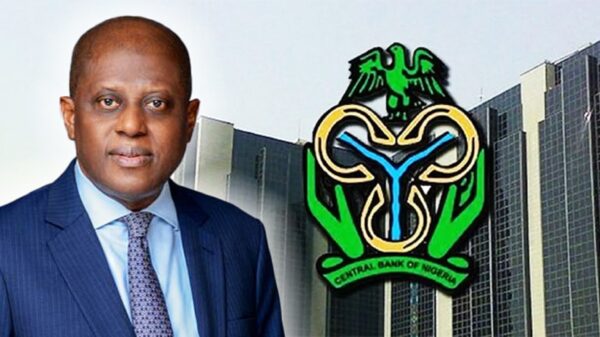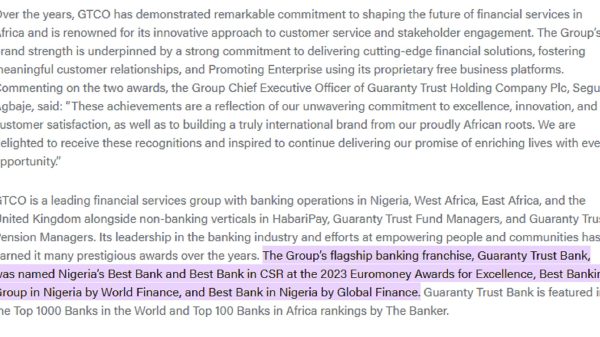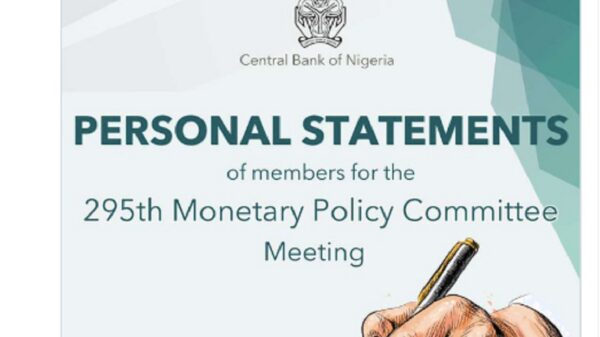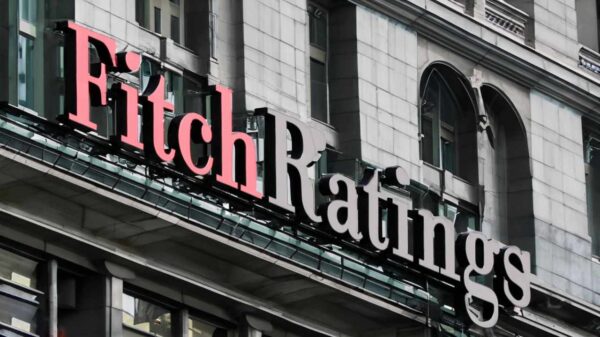The Nigeria Labour Congress (NLC) and the Trade Union Congress (TUC) have announced a nationwide strike starting on June 3rd. They demand the federal government finalize negotiations on a new national minimum wage and reverse the recent electricity tariff hike. This strike follows the government’s failure to meet the May deadline for these demands.
The Background of the Strike
The NLC and TUC have been in talks with the federal government for months. They asked for a new minimum wage, but the government has yet to agree to their demands. The unions have twice rejected the government’s offers, the most recent being N60,000.
The unions’ leaders, frustrated by the lack of progress, decided to call for a strike. This decision came after a joint news conference in Abuja, where they announced the strike.
The Reasons Behind the Strike
The unions argue that the current minimum wage is too low for workers to live on. They also oppose the hike in electricity tariffs, which they say adds to the financial burden on workers.
The unions believe that a higher minimum wage and lower electricity costs are necessary for workers to have a decent standard of living. They have been negotiating with the government to address these issues, but the government still needs to meet their demands.
A nationwide strike will have a significant impact on the country. Many services will be disrupted, and businesses may be forced to close temporarily.
The unions hope the strike will pressure the government to meet their demands. They have urged workers nationwide to join the strike and stand in solidarity with their fellow workers.
The Government’s Response
The federal government has yet to respond to the announcement of the strike. In the past, the government has said that it is committed to improving workers’ lives and working to address their concerns.
However, the unions are skeptical of these promises and are determined to see concrete action. They have called on the government to finalize the negotiations and meet their demands before the strike begins.
The Role of the NLC and TUC
The NLC and TUC are the two largest labor unions in Nigeria. They represent millions of workers across the country and significantly influence labor issues.
The unions have a history of organizing strikes and protests to advocate for workers’ rights. They believe that collective action is the most effective way to bring about change and improve workers’ lives.
The History of Minimum Wage Negotiations
The issue of the minimum wage has been contentious in Nigeria for many years. The current minimum wage was set several years ago and has yet to keep pace with inflation and the rising cost of living.
The unions have pushed for a higher minimum wage to reflect these changes. They argue that a higher minimum wage is necessary to ensure workers can afford necessities and live with dignity.
The Electricity Tariff Hike
In addition to the minimum wage issue, the unions are also protesting the recent hike in electricity tariffs. They argue that the higher tariffs place an additional financial burden on workers struggling to make ends meet.
The unions believe that the government should reverse the tariff hike and work to make electricity more affordable for all Nigerians.
The Importance of Collective Bargaining
The unions believe collective bargaining is essential for protecting workers’ rights and improving their conditions. They argue that negotiations with the government are the best way to achieve their goals. However, they also believe that strikes and protests are sometimes necessary to pressure the government to take action. The unions call on all workers to support the strike and solidarity.
While the unions are determined to proceed with the strike, there is still hope for a resolution. The government can finalize the negotiations and meet the unions’ demands before the strike begins.
If the government addresses the unions’ concerns, it could prevent the strike and avoid the disruptions it would cause. The unions have said they are willing to negotiate and find a solution that works for everyone.
The Role of the Media
The media is crucial in covering the strike and informing the public. Journalists will follow the story closely and provide updates on the negotiations and the strike’s impact.
The unions use the media to communicate their demands and mobilize support for the strike. They believe that public awareness and support are essential for the success of their campaign.
The strike has also attracted international attention. Labor unions and human rights organizations worldwide are watching the situation closely. They express solidarity with Nigerian workers and call on the government to respect their rights. The international community is also concerned about the potential impact of the strike on the Nigerian economy and the wider region.
The Future of Labor Relations in Nigeria
The strike’s outcome will have significant implications for labor relations in Nigeria. If the unions succeed in their demands, it could set a precedent for future negotiations and strengthen the position of workers.
However, if the government does not meet their needs, it could lead to further unrest and protests. The future of labor relations in Nigeria will depend on how the government and the unions handle this crisis.
The Call to Action
The unions call on all workers to join the strike and stand in solidarity with their fellow workers. They believe collective action is the best way to achieve their goals and improve workers’ lives.
The unions also call on the public to support their campaign and pressure the government to meet their demands. They believe that they can bring about the change that workers need with enough support.
The Role of Civil Society
Civil society organizations have also expressed support for the strike. They believe that the unions’ demands are justified, and that the government should take action to address them.
Civil society groups are calling on the government to engage in meaningful negotiations with the unions and find a solution that works for everyone. They believe the strike is a significant opportunity to address long-standing issues and improve workers’ lives.
The Economic Implications
The strike will have significant economic implications for Nigeria. The disruption of services and the closure of businesses will harm the economy.
However, the unions argue that the long-term benefits of a higher minimum wage and lower electricity tariffs will outweigh the short-term costs. They believe that improving the conditions of workers is essential for sustainable economic growth and development.
The Social Implications
The strike will also have significant social implications. It will bring attention to the struggles of workers and the need for better conditions. The unions believe the strike is an opportunity to raise awareness about these issues and mobilize support for their cause. They hope that the strike will lead to meaningful change and improve the lives of workers and their families.
The Role of Workers
The strike’s success will depend on the participation and support of the workers. The unions call on all workers to join the strike and stand in solidarity with their fellow workers.
They believe collective action is the best way to achieve their goals and improve workers’ lives. The unions also call on workers to stay informed and engaged in the negotiations and the strike.
The Role of Employers
Employers also have a role to play in the strike. They can support the unions’ demands and advocate for better conditions for their workers. Employers can also negotiate meaningful negotiations with the unions and the government to find a solution that works for everyone. The unions believe that employers have a responsibility to support their workers and help improve their conditions.
The Importance of Unity
The unions believe that unity is essential for the success of the strike. They call on all workers, civil society organizations, and the public to stand together in solidarity.
They believe collective action is the best way to achieve their goals and improve workers’ lives. The unions also call on the government to engage in meaningful negotiations and find a solution that works for everyone.
The leadership of the NLC and TUC is crucial for the strike’s success. The union’s leaders have worked tirelessly to advocate for workers’ rights and improve their conditions.
They have been negotiating with the government and mobilizing support for the strike. The unions believe that strong leadership is essential for their campaign’s success and improving workers’ lives.
The Importance of Persistence
The unions believe that persistence is essential for the success of the strike. They are determined to continue their campaign until their demands are met.
The unions call on all workers to stay committed and engaged in the strike. They believe that with enough persistence and determination, they can bring about meaningful change and improve workers’ lives.
The Role of Negotiation
The unions believe that negotiation is the best way to achieve their goals. They have been negotiating with the government for months and are willing to continue these negotiations.
The unions believe meaningful negotiations can lead to a solution that works for everyone. They call on the government to engage in meaningful talks and find a solution that meets their demands.
The Importance of Solidarity
The unions believe that solidarity is essential for the success of the strike. They call on all workers to stand together to support their demands. The unions believe collective action is the best way to achieve their goals and improve workers’ lives.
They also call on civil society organizations and the public to support their campaign and pressure the government to meet their demands.
The Potential for Change
The unions believe the strike is an opportunity to bring about meaningful change. They think a higher minimum wage and lower electricity tariffs are essential for improving workers’ lives.
The unions are calling on the government to meet their demands and take action to address the issues facing workers. They believe that they can bring about the change that workers need with enough support.
The Role of the Public
The unions call on the public to support their campaign and pressure the government to meet their demands. They believe that public support is essential for the success of the strike.
The unions also call on the public to stay informed and engaged in the negotiations and the strike. They believe that with enough support, they can bring about meaningful change and improve workers’ lives.
The Future of Workers’ Rights
The strike’s outcome will have significant implications for the future of workers’ rights in Nigeria. If the unions succeed in their demands, it could set a precedent for future negotiations and strengthen the position of workers.
However, if the government does not meet their needs, it could lead to further unrest and protests. The future of workers’ rights in Nigeria will depend on how the government and the unions handle this crisis.























































You must be logged in to post a comment Login